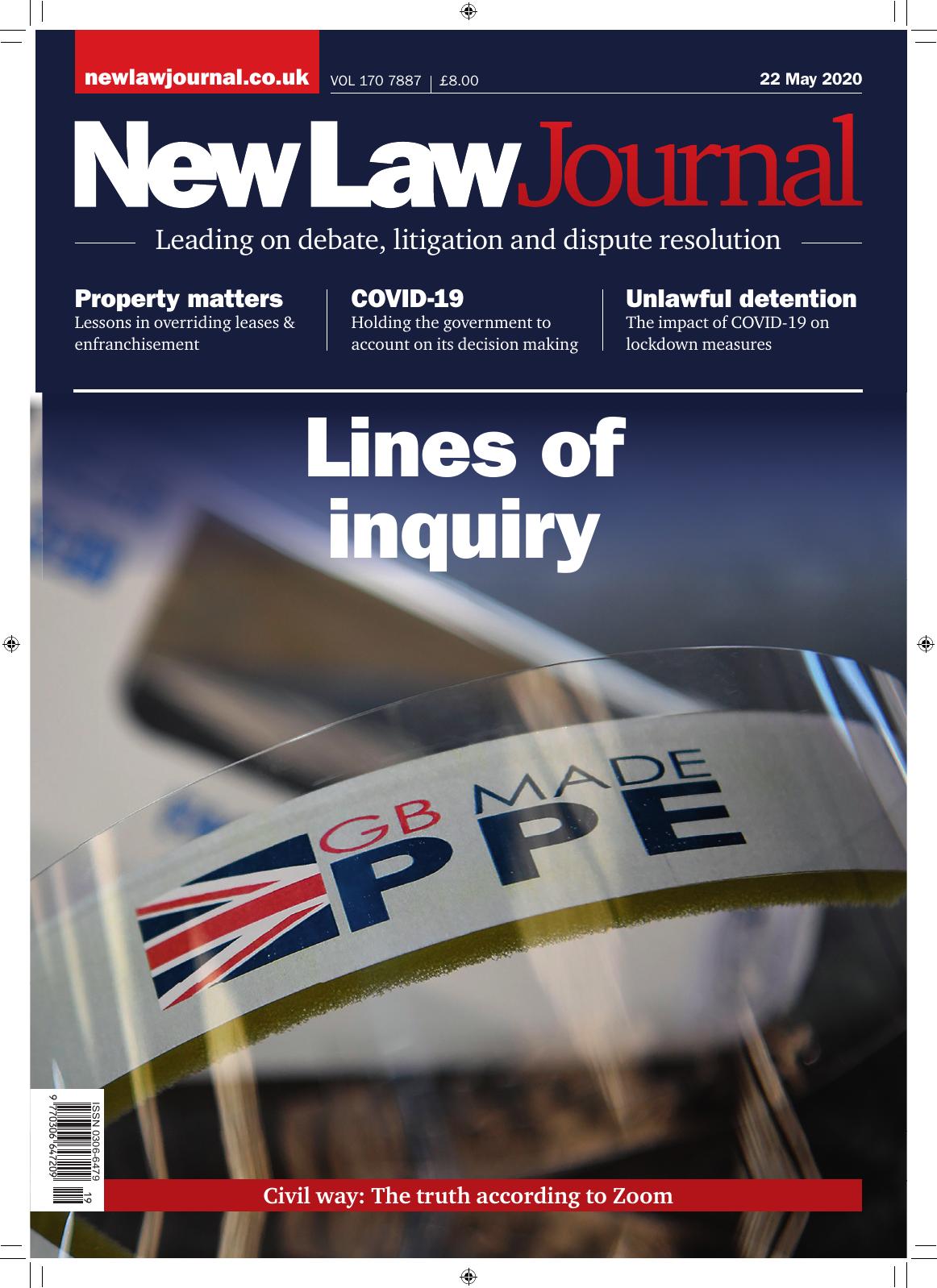
Elkan Abrahamson, director at Liverpool firm Broudie Jackson Canter, said a public inquiry was ‘inevitable and essential’.
‘I accept that having a full inquiry now would involve experts whose time might be better spent advising the government. Yet any post-COVID inquiry will come too late to prevent the deaths that must surely result from the government’s latest decision to relax movement restrictions.
‘So, we should start an inquiry immediately with the initial purpose of simply gathering and sharing evidence―hearings can come later.’
Former head of the Home Civil Service Sir Bob Kerslake and the Trades Union Congress have also urged a public inquiry. Nick Griffin QC, of QEB Hollis Whiteman, suggested in this week’s Law Society Gazette that there was ‘a solid basis for triggering an inquiry’.
Writing in NLJ this week, Sophie Kemp, public law partner, Kingsley Napley, says the government could find itself compelled to hold an inquiry under Art 2 of the European Convention on Human Rights, which imposes ‘a positive obligation to take appropriate measures to safeguard life’. Article 2 includes an ‘investigative duty’, which ‘is engaged where “systemic” issues are suspected to have contributed to a person’s death’, she says.
Kemp sets out areas likely to form part of the terms of reference of any future inquiry. These are: early decision making and planning; the policy and guidance on discharging hospital patients to care homes; and PPE (personal protective equipment) supply, resourcing and guidance that ran contrary to many doctors’ concerns.
She also highlights key policy decisions that were out of step with World Health Organisation (WHO) guidance, and which participants in a future inquiry may argue were inconsistent with the government’s obligation to take practical steps to reduce the risk of death. They include the 12 March decision to end testing and contact tracing when moving from the ‘contain’ phase to ‘delay phase’ of the government response, ‘the apparent decision to adopt a “herd immunity” strategy during the ‘delay phase’; and whether lockdown was introduced too late.








.tmb-mov69x69.jpg?sfvrsn=3d1684d4_1)

